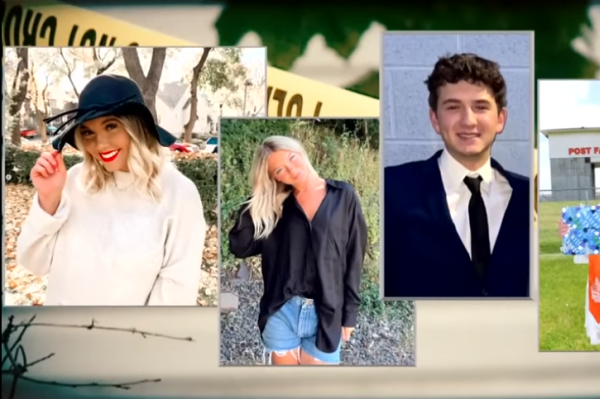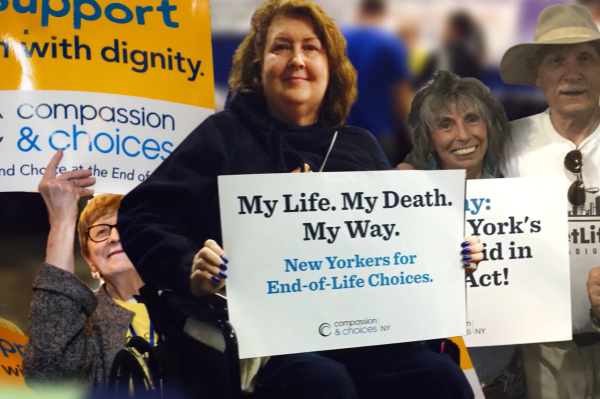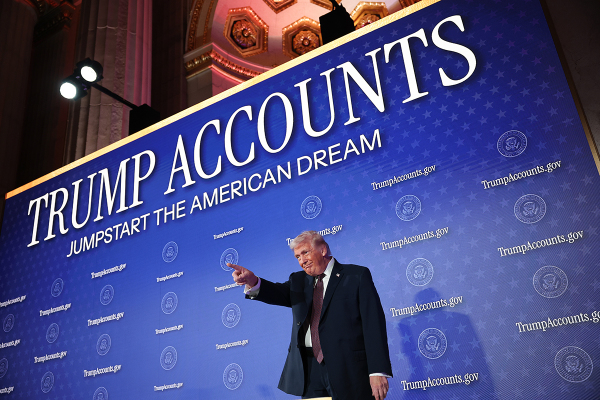Megachurch that collected nearly 20K ballots challenges other churches to step up in 2024
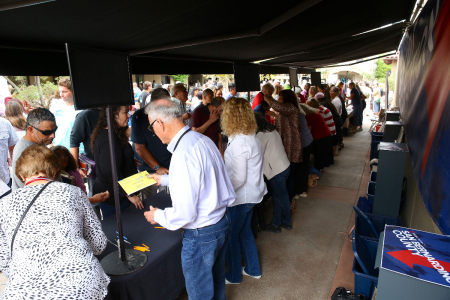
Editors' note: This is part 2 of The Christian Post's year-long articles series "Politics in the Pews: Evangelical Christian engagement in elections from the Moral Majority to today." In this series, we will look at issues pertaining to election integrity and new ways of getting out the vote, including churches participating in ballot collection. We'll also look at issues Evangelicals say matter most to them ahead of the presidential election and the political engagement of diverse groups, politically and ethnically. Read other articles in the series by clicking here.
A California megachurch that collected nearly 20,000 ballots in the last two elections is encouraging churches nationwide to host ballot collection efforts to boost Christian turnout in the 2024 election as Americans grow increasingly willing to cast their votes before Election Day.
Through its Real Impact ministry, Calvary Chapel Chino Hills, led by Pastor Jack Hibbs, seeks to equip churches "to stand for righteousness in the public square.” The ministry's leader, Gina Gleason, says the megachurch, which has about 10,000 regular congregants, first got involved in ballot collecting after laws changed in California.
“We saw that ballot collecting or ballot harvesting, the way they describe it in legislation … was passed into [California] law in 2016,” Gleason recalled, noting it was “first implemented in the 2018 election."
The new legislation resulted in “significant wins” for Democrats and progressive candidates that year. After that, “we decided that we would do the same activity at the church because it was legal.”
“The California law says that a person can turn in a ballot for any person," Gleason told The Christian Post. "Prior law said that you had to be a family member or reside in the same household. Well, that was abolished, and it just opened it up to anyone … whether it’s a neighbor or a stranger knocking at your door. So, anyone can turn in a ballot for a voter. And there is no limitation on the number of ballots that you can turn in.”
Real Impact's efforts haven't been limited to California. Gleason recently told Christian conservatives gathered at the Family Research Council's Pray Vote Stand Summit in Washington, D.C., in September there are 17 states where churches can feasibly take an active role in ballot collecting.
Although many conservatives would rather vote on Election Day and have criticized "ballot harvesting" efforts in the past, national leaders are stressing that if Christians don't take advantage of early voting and mail-in ballot laws, they could be at a political disadvantage.
Tony Perkins, president of FRC, a national Evangelical advocacy group and think tank, told attendees of a Community Impact Training event on Oct. 3 that "if we want to win, we need to take advantage of the laws."
"Let me just encourage you to take advantage of our opportunities to vote early," he said. "Let me give you an example in Arizona in the midterm election. Some of you may have heard what happened when there were issues with the voting machines and people were waiting in lines for hours, and some people gave up, and they went home. Well, what happened was the not-so-conservative party had banked a lot of votes before Election Day. But conservatives, we like to vote on Election Day. ... But if we want to win elections, we need to take advantage of the laws."
Ballot collecting at Calvary Chapel Chino Hills
Gleason also spoke at the FRC's Community Impact Training, where she said she felt the Lord calling on her to get involved. After Gleason researched the topic, Pastor Hibbs told her, “We need to do ballot collecting.” She assured the pastor that she was “already working on it.”
The church began training volunteers to collect ballots on tables in the church courtyard for the 2020 election.
“I trained our volunteer team, and we set up our tables in the courtyard with our volunteers behind the table, and behind the volunteers and the table were lockboxes. So when a person walked up to our table, we looked at the ballot, made sure that the ballot was filled out correctly, because there are just a few requirements on the ballot, and that ballot was dropped into the lockbox," she said.
A church ballot collection manual compiled by Gleason identifies the components of the ballot envelope that Calvary Chapel Chino Hills examines before turning them in: a voter signature, the date, the voter’s printed name and their address.
The manual instructs voters to leave blank a field on the envelope reading “I authorize the person below to return my ballot” so that “the volunteer who delivers the ballot to the elections’ office” can fill it out.
“Now, once the ballots were dropped into the lockbox and the box was getting full, two volunteers emptied out the ballots [and] walked them into a locked room at the church,” she added.
Gleason said California law requires those engaged in ballot collecting to “turn the ballots into the county where the voter is registered to vote."
Chino Hills is located in San Bernardino County and miles from Los Angeles County, Orange County and Riverside County.
“People who live in those counties attend our church. So we set up our collection tables for four different counties and … the counties were identified with a big sign,” she explained.
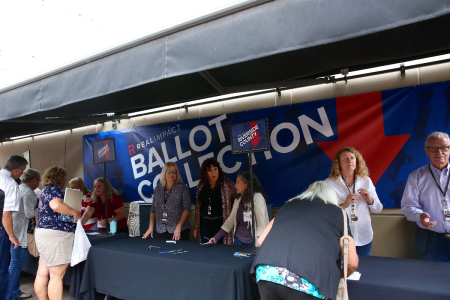
“And the people walked up to whatever county they registered to vote in and they dropped [their ballots] off to that volunteer. Then the volunteers made sure that all the ballots were dropped in the correct lockbox and they separate them out, making sure once again they're correctly filled out, and then they take the ballots to the county registrar for their particular county.”
Gleason estimated that Calvary Chapel Chino Hills collected approximately 6,000 ballots in the 2020 election cycle. That number increased to 13,335 in the 2022 election cycle. She vowed that we “will be conducting the same type of activities that we conducted [during] this last election in 2022 and prior elections.”
“We will be collecting … mail-in ballots at the church, and we invite people to bring in their ballots and any other person that they want to carry the ballot into the church on their behalf … they’re welcome to do that.
"We believe that Christians should vote, and we want to make it as easy as possible for the Christian to vote,” she asserted. “Because they’re going to be at church on Sunday anyway, we thought it would be a great way to serve the church body, and we just make it easy to do that.”
Gleason said the congregants were “very supportive and appreciative” of Real Impact's efforts.
"They are just very excited to see a church that would be willing to be involved in what’s going on at election time and in our culture," she added.
“I think that people value the fact that a church is willing to collect ballots and they recognize that the church volunteers can be trusted with their ballots. I think that’s why we collected so many this past election. Every election … the number of ballots we collect increases. The word gets out that we’re doing this, and people come from all over Southern California to deliver their ballots to us.”
Gleason said “increased voter turnout” has been a benefit of churches engaging in ballot collecting. The manual she created expands on this point further, stating that “a greater turnout by Christian voters has the potential to impact these election results, thus ushering in a greater possibility that biblically grounded policy will be introduced, protecting the principles we hold dear.”
“To the people that do not like voting by mail and ballot collecting … I agree with them. I believe the best way to vote would be to walk into a polling location and vote in person," she said. "Nonetheless, it is the law in California and there are plenty of people who are willing to collect ballots and I feel that it would help Christian turnout if we also collect ballots and other churches collect ballots.”
The legality of ballot collecting
Because of state laws on ballot harvesting, not every church will have the ability to engage in ballot collection efforts like Calvary Chapel Chino Hills.
At the Family Research Council’s Pray Vote Stand Summit, Gleason listed the states where it is feasible for churches to engage in ballot collection: California, Delaware, Hawaii, Idaho, Illinois, Maryland, Nevada, New York, Oregon, Rhode Island, South Dakota, Tennessee, Utah, Vermont, Virginia, Washington and Wyoming.
Ballotpedia, which bills itself as the encyclopedia of American politics, has more information about the legality of ballot collecting in each state. Specifically, 12 states have limits on the number of ballots a person can return on others’ behalf, meaning that ballot collection efforts by a large church are not feasible in some states, including: Arkansas, Colorado, Florida, Kansas, Louisiana, Maine, Minnesota, Nebraska, New Hampshire, New Jersey, North Dakota and West Virginia.
Thirteen states limit who can return ballots on behalf of another person: Arizona, Georgia, Indiana, Iowa, Massachusetts, Michigan, Missouri, New Hampshire, New Mexico, North Carolina, Ohio, Oklahoma and Texas. Alaska, Connecticut, Kentucky and Pennsylvania only allow ballot collecting in certain circumstances, while Mississippi and Wisconsin do not have “laws specifying whether someone may return ballots on behalf of voters.”
Ballotpedia lists Montana and South Carolina as states that allow “someone chosen by the voter to return their ballot.” Alabama is the only state that has banned ballot collecting.
At the event, Gleason credited her church’s ballot-collecting efforts with positively affecting the outcome of a school board race in the surrounding community.
“Our local school district was run by progressives,” she declared, specifically referring to “Planned Parenthood-supported candidates” as well as those endorsed by “Democrat leadership.”
“Tony Thurmond, who is the California [state] Superintendent of [Public] Instruction, actually came out to walk door-to-door for one of the progressives because they wanted to hold on to this seat,” she continued. “The reason he did that was because he knew that our large church was very involved in what’s going on in the community and they wanted insurance.”
Gleason said the progressive candidate lost, expressing gratitude that Calvary Chapel Chino Hills member Sonja Shaw was elected president of the Chino Valley Unified School District Board of Education.
“All of us working together made a difference in that election,” Gleason said, citing Shaw’s victory as an example of how “you can make a difference in your community.”
She stressed that churches have to remain nonpartisan as they engage in ballot-collecting efforts, meaning they can't promote political parties or particular candidates.
“If you are collecting ballots at a church, you never ask what party they’re with or what candidates they’re supporting. You take everyone’s ballots, no questions asked," she said.
The ballot collection manual contains a letter from attorney Harmeet Dhillon assuring that “ballot collection by your church will not jeopardize your 501(c)(3) status as long as you do not promote or advance any candidate over another,” referring to the church’s tax-exempt status with the Internal Revenue Service.
Calvary Chapel Chino Hills’ efforts to get Christians engaged in the political process are not limited to ballot collecting. The church also holds voter registration drives every Sunday all year long. Gleason outlined at the Pray Vote Stand summit that Calvary Chapel Chino Hills creates “voter guides for school board and city council races.”
Gleason hosted an all-day workshop at Calvary Chapel Chino Hills on Oct. 21, where she discussed ballot collecting for churches, voter registration laws and “legal do’s and don’ts for churches.” The workshop is designed for pastors, church representatives, members of church community impact teams as well as organization leaders and teammates.
Ryan Foley is a reporter for The Christian Post. He can be reached at: ryan.foley@christianpost.com










